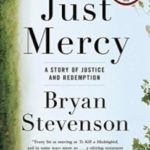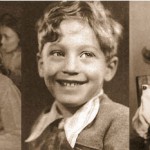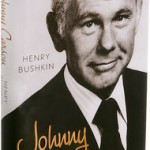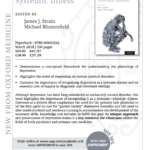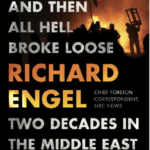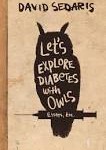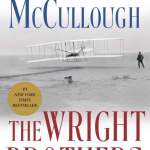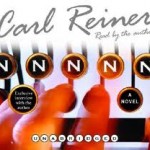September 3rd, 2018 — 2:35pm
 The Hate U Give
The Hate U Give
By Angie Thomas
The main theme of this book is well known to every black parent and child who has participated in “The Talk.” A black teenage boy and girl who were like buddies since they were young kids are riding at night in a car. A white policeman pulls them over. The teenage boy who was driving was asked to get out of the car. He wants to know why is he being pulled over and is irritated. Skip a few beats, and the next thing we know there are several gunshots. The boy is dead and the girl is left to tell the story – the whole story.
Although this is a novel, we know every nuance of this painful tale could be true. The details of this girl’s life and the life of her parents, siblings, relatives, friends and the life and death of her childhood friend all feel genuine and real as they jump from the pages of this book or as they light up on your iPad.
Our heroine, on the surface seemed to lead two lives. One is at the private school she attended with her white friends, which her parents hoped would give her the best chance in life. The other was her time with her friends and family in the “hood” where she was comfortable and could speak her mind and talk in her true language. Did I mention that Starr (that was her name) actually was bilingual and much of the book was written in a language that was not my native tongue, but for some reason every word and nuance was crystal clear.
The author found a way to take us on journey into the lives, hearts and emotions of this 16-year-old black girl and also her parents, siblings, uncle, cousins and friends. We came away with insight into how a destructive riot can envelop a community.
However, there is a glimmer of optimism among the painful hate and destruction in this book and that is in the character of a bewildered white young man who is Starr’s boyfriend. He stands by and closely follow the bright light that is his inspired girlfriend. His journey appears to be one of insight and understanding into the pain and hate that rumbles through the streets. Perhaps this is the author’s metaphor for hope that will eventually emerge in the future.
Please leave any comments below
To purchase a copy of this book please click here
1 comment » | FG - Fiction General
February 28th, 2017 — 4:49pm
The Short and Tragic Life of Robert Peace by Jeff Hobbs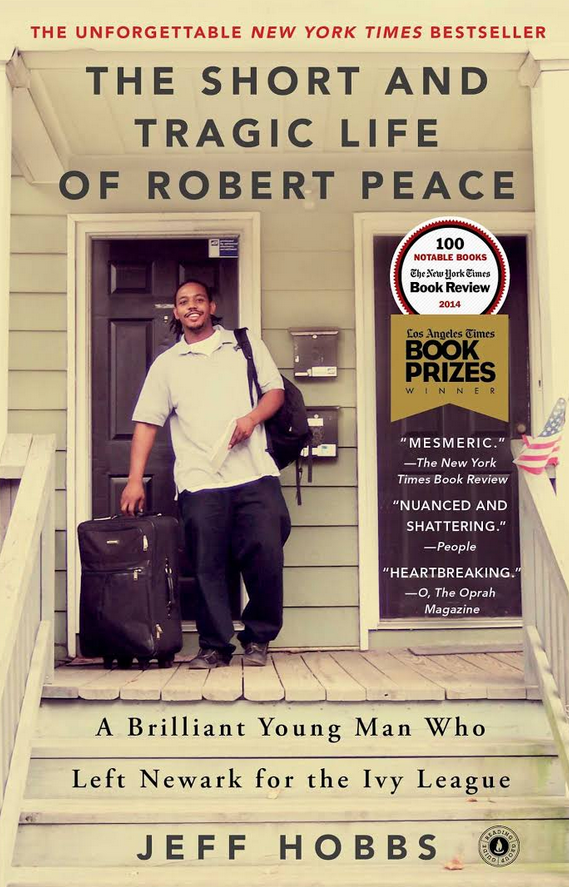
As is often the case, 30-year-old Jeff Hobbs had drifted apart from his college roommate when he learned that Robert Peace had tragically been killed. (No spoiler here as the title suggested it all). They had occasionally been in contact in the seven or eight years since they graduated from Yale. Hobbs was a budding writer with a novel under his belt. It must have been a combination of his knowing that his old roommate’s life was a story worth telling and his own grieving process that made him embark upon this project.
Once Hobbs decided to write a full book about Rob’s life, he spent about three and a half years talking to Rob’s family, especially Jackie, his mother, close friends, classmates and even some drug dealers. Hobbs basically reconstructed Rob’s life with a vivid description of events and circumstances including meaningful conversations that Rob had with various people in his life. The reader gets an insight into this young man’s intelligence and his feelings about other people. The story gives us a painting of how Rob grew up and how hard his mother worked to support him and motivate him. She worked numerous hours while also caring for her own sick mother. Rob’s close relationship with his father was very important to him. He visited his father in prison frequently for many years until his father died in prison while Rob was in college. Rob also worked even as a teenager, studying legal books to try to help his father appeal his conviction for murder for which he may have been wrongly convicted.
The reader understands Rob as a poor, very bright African-American young man who learned to navigate the streets of his New Jersey neighborhood Orange near Newark, as well as a Catholic High School and then Yale We appreciate how Rob handled the drug environment where he grew up and the mostly marijuana use that he saw at college and even became a trafficker in it. We viewed Rob at times as a scientist who studied molecular biology as a student and a researcher. We viewed him as an outstanding water polo player in high school and college and even after college, we see him struggling to find himself and plan for a possible future career at the same time that he was supporting himself by selling marijuana. He was a sensitive, empathic friend to many who was always ready to be very supportive in any way that he could.
The reader has to ask the question, did Rob’s life have to end the way that it did? It wasn’t just bad luck. There obviously were things that he could not overcome. Since this has become a popular book, it will be read by many young people including some poor bright kids like Rob, probably many African-American young men. Most will probably ask this same question, did his life have to end the way that it did? At one point while in college, he was called on the carpet by the school dean for selling marijuana. He could have been expelled but he was given a slap on the wrist and told not to do it again. We know that you can’t force people to enter therapy but I can’t help wondering if Rob had ever found his way into psychotherapy and had a meaningful relationship with a therapist, maybe he could have made the connections that might have derailed him from the bad decisions and indecision that occurred in the last year of his life.
This man obviously impacted many men and women as a teacher, coach and friend. In that way, he made a positive difference in people’s lives. This well-written book will also allow his life story to continue to influence others so the short life of Robert Peace won’t be so short after all.
To obtain this book from Amazon, please click here
Comment » | B - Biography
November 19th, 2013 — 1:03am
 Americanah by Chimamanda Ngozi Adichie This is a novel about Ifemelu an attractive bright young woman who grows up in Lagos, a city in Nigeria. She falls in love with Obinze and they seem to be a perfect pair meant for each other. However like many educated young people from Nigeria she is driven to explore horizons beyond her environment and finds a way to come to America. We are able to follow her on this at times torturous journey. We come to understand her relationships with the people that she meets and her love life with several men as well as her career which includes, not surprisingly, being a writer and eventually a blogger. We see through her eyes how she is viewed by Americans both black and white and the distinctions that she draws between Non-African Black and African Black. The reader gains thoughtful and at times jolting insights into the complexities of the meaning of what might be considered an incidental task and that is how she decides to have her hair done. Ifemelu’s decision to return to Nigeria allows the reader to gain a further prospective on some of the views of her countrymen and women towards America as well as her view of her country based on her years of living in the U.S. Make no mistake, Ifemelu the main character should not be considered a stereotype of Africans or even of Nigerians. She is a product of her environment and all the experiences to which she has been exposed. Her life and the choices which she makes can be understood and identified with by many of the readers from different backgrounds. The idea that there is no single story for one group of people is something very important to the author.
Americanah by Chimamanda Ngozi Adichie This is a novel about Ifemelu an attractive bright young woman who grows up in Lagos, a city in Nigeria. She falls in love with Obinze and they seem to be a perfect pair meant for each other. However like many educated young people from Nigeria she is driven to explore horizons beyond her environment and finds a way to come to America. We are able to follow her on this at times torturous journey. We come to understand her relationships with the people that she meets and her love life with several men as well as her career which includes, not surprisingly, being a writer and eventually a blogger. We see through her eyes how she is viewed by Americans both black and white and the distinctions that she draws between Non-African Black and African Black. The reader gains thoughtful and at times jolting insights into the complexities of the meaning of what might be considered an incidental task and that is how she decides to have her hair done. Ifemelu’s decision to return to Nigeria allows the reader to gain a further prospective on some of the views of her countrymen and women towards America as well as her view of her country based on her years of living in the U.S. Make no mistake, Ifemelu the main character should not be considered a stereotype of Africans or even of Nigerians. She is a product of her environment and all the experiences to which she has been exposed. Her life and the choices which she makes can be understood and identified with by many of the readers from different backgrounds. The idea that there is no single story for one group of people is something very important to the author.
After I completed this book, I wanted to know to know more about the author.I found this video clip of Ngozi Adichie giving the prestigious TED lecture. I highly recommend it to anyone who may be considering spending time with this novel as it will give you an idea of intelligence and thoughtfulness of the author
The link is :
http://www.ted.com/talks/chimamanda_adichie_the_danger_of_a_single_story.html?quote=559
There was a passage in the book which was one of several blogs written by Ifemelu, which struck me as a clear descriptions of racism in America. While it is only a small part of the book, I thought it was worth repeating and using it to demonstrate the value of reading this book:
Understanding America for the Non-American Black: A few Explanations of What Things Really Mean
1-Of all their tribalisms, Americans are most uncomfortable with race, If you are having a conversation with an American, and you want to discuss something racial that you find interesting, and the American says, “ Oh, it’s simplistic to say it’s race, racism is so complex,” it means they just want you to shut up already, Because of course racism is complex. Many abolitionists wanted to free the slaves but didn’t want black people living nearby. Lots of folk today don’t mind a black nanny or black limo driver. But they sure as hell mind a black boss. What is simplistic is saying “It’s so complex.” But shut up anyway, especially if you need a job/favor from the American in question.
2. Diversity means different things to different folks. If a white person is saying a neighborhood is diverse, they mean nine percent black people (the minute it gets to ten percent black people, the white folk move out.) If a black person says diverse neighborhood, they are thinking forty percent black.
3. Sometimes they say “culture” when they mean race. They say a film is “mainstream” when they mean “white folks like it or made it,” When they say “urban” it means black and poor and possibly dangerous and potentially exciting. “Racially charged” means we are uncomfortable saying “racist.”
Comment » | FG - Fiction General, FR - Fiction Romance
 The Hate U Give
The Hate U Give
